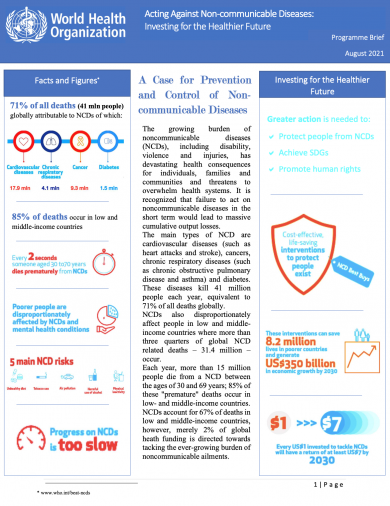
Acting Against Non-communicable Diseases in South Africa: Investing for the Healthier Future
The growing burden of noncommunicable diseases (NCDs), including disability, violence and injuries, has devastating health consequences for individuals, families and communities and threatens to overwhelm health systems. It is recognized that failure to act on noncommunicable diseases in the short term would lead to massive cumulative output losses.
The main types of NCD are cardiovascular diseases (such as heart attacks and stroke), cancers, chronic respiratory diseases (such as chronic obstructive pulmonary disease and asthma) and diabetes. These diseases kill 41 million people each year, equivalent to 71% of all deaths globally.
NCDs also disproportionately affect people in low and middle- income countries where more than three quarters of global NCD related deaths – 31.4 million – occur.
Each year, more than 15 million people die from a NCD between the ages of 30 and 69 years; 85% of these "premature" deaths occur in low- and middle-income countries. NCDs account for 67% of deaths in low and middle-income countries, however, merely 2% of global heath funding is directed towards tacking the ever-growing burden of noncommunicable ailments.